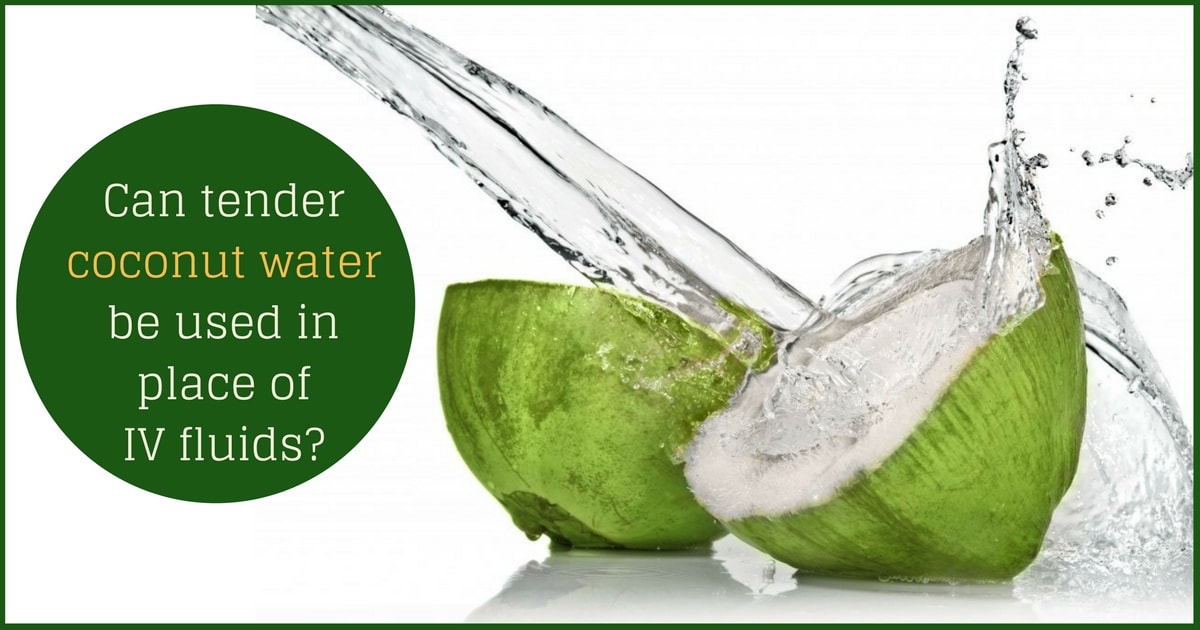Can tender coconut water be used in place of IV FLUID?

There is a very popular myth that tender coconut water can be used in place of IV fluids. This popular myth arises from two facts. The first is coconut water resembles blood plasma and the second is it was given as intravenous fluid during the Second World War. Is there any truth in these two arguments? Let us explore.
Coconut Water Resembles Blood Plasma – Is it true?
Human blood plasma has higher amounts of sodium and lower amounts of potassium. It also has trace amounts of other minerals. Coconut water on the other hand is just the opposite. It has higher levels of potassium and lower levels of sodium. To be precise, coconut water has 1/40 times the level of sodium present in plasma while it has almost 12-15 times higher levels of potassium. So in composition, they are not the same.
This simple fact makes it clear that coconut water and plasma are not biochemically identical. Hence coconut water is not a true substitute to intravenous fluids.
Were patients administered coconut water instead of IV Fluids during Second World War?
Yes. That part is absolutely true. While this got reported widely, what never got reported widely are the reactions the patients developed after administering coconut water. During the war time, the shortage of intravenous fluids was met by coconut water and hence there were no formal studies to support the claim that they are safe.
As a formal experiment, near about 157 patients were administered with coconut water and some reacted adversely. Many reported an itching feeling in the veins that were administered with coconut water. Some developed fever, itchiness and tingling in the hands.
Though the coconut water when inside the nut is absolutely sterile it might become contaminated with bacteria and become unsterile when exposed to crude techniques. So this can be one of the major concern and make coconut water unfit for substituting intravenous fluids.
The Finding – It is safe to use intravenous fluids because they are sterile and their composition is near identical to blood plasma.
Latest posts by Jithya (see all)
- 8 easy ways to reduce the pregnancy weight - April 25, 2018
- 8 warning signals of mental illness - April 18, 2018
- 12 habits that are really bad for our heart - March 20, 2018
